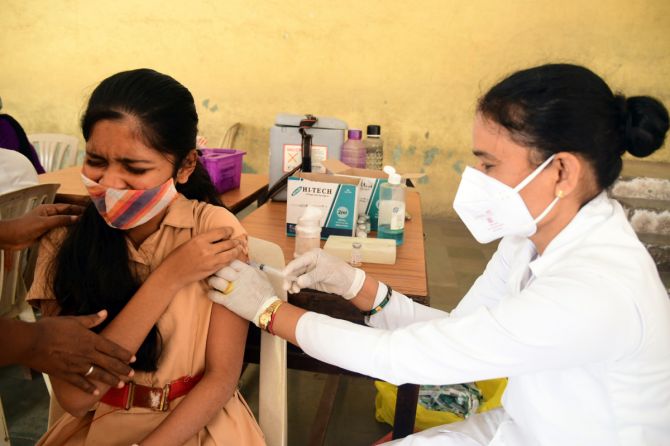As coronavirus infections surged in Mumbai, the city could witness a peak between January 6 to 13 and take a month for the cases to see a decline, according to researchers at the Tata Institute of Fundamental Research.

Sandeep Juneja, senior professor, School of Technology and Computer Science, at the TIFR, said the peak fatalities could be in February, but it is expected to be around 30 to 50 per cent less than what was recorded during the deadly second wave between March to May last year.
The city recorded 10,860 cases, the highest daily count since April 7, 2021, on Tuesday.
"Cases in Mumbai could peak between January 6 to 13 and they are likely to come down to lower levels in around a month. The peak fatalities are expected to be around 30 to 50 per cent less than what was witnessed during the second (delta) wave," Juneja , who is involved in Covid-19 modelling for the city, said.
He, however, did not comment on the number of cases that the city is expected to witness during the peak between January 6 to 13.
Mumbai had recorded 11,206 coronavirus cases on April 4 last year. On May 1, the city recorded 90 deaths -- the highest number of single-day fatalities due to coronavirus so far.
"Hospitalisation too is also expected to 50-70 per cent less than the second wave," he said.
He said the data has been generated from the preliminary analysis from TIFR's Mumbai AB simulator and the assumptions are based on the South Africa, and United Kingdom data.
Juneja said the key assumptions during the modelling were that 35 per cent of the recovered population is amenable to reinfection to Omicron and the new variant is two times more infectious compared to Delta.
Symptomatic cases are 20 per cent less compared to delta and hospitalisation of symptomatic is 40 per cent less compared to the delta for the suspect population, he added.
For the infected but not vaccinated and amenable to reinfection, this number further reduces by 50 per cent.
For the doubly vaccinated and infected (and amenable to reinfection) the reduction factor is not 50 per cent but 70 per cent, Juneja said.











 © 2025
© 2025